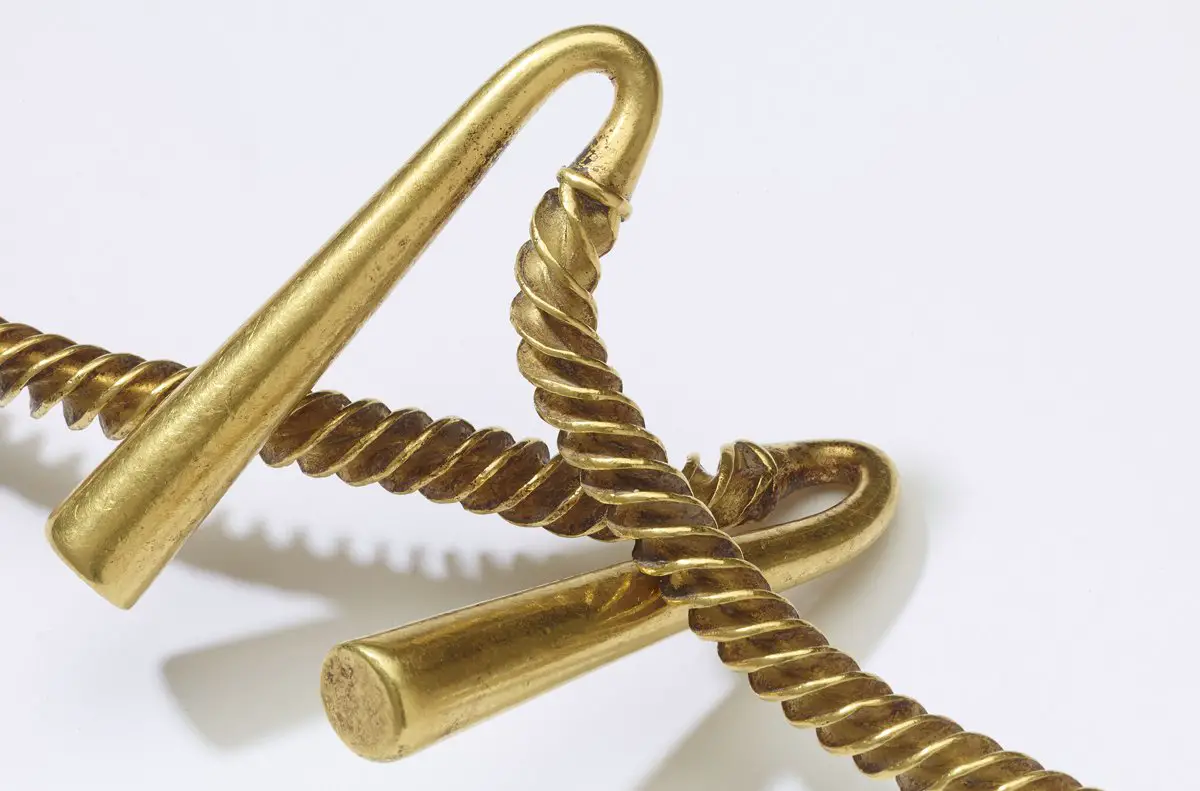Thieves have broken into Ely Museum and stolen historical treasures dating from the Bronze Age.
Ely Museum is located in the cathedral city of Ely, in the East Cambridgeshire district of Cambridgeshire, England.
According to museum sources, the break-in occurred in the early hours of Tuesday morning on the 7th May 2024.
The thieves stole the museum’s most prized object, the East Cambridgeshire gold torc, which the museum acquired in 2017 through a series of grants and donations by the public.
The East Cambridgeshire gold torc dates from the Bronze Age around 3,000-years-ago and is one of the largest gold torc’s discovered in Britain – measuring 126 cm’s and weighing 730 grams. Also stolen is a rare Bronze Age gold bracelet.
Elie Hughes, Ely Museum Curator, said: “We are devastated by the loss to the museum and to the local heritage of the region. It is a huge blow after the incredible support from the community in acquiring the torc in 2017. As a culturally significant object, it cannot be replaced. Our priority now is working with the police to locate the stolen objects.”
Detective Inspector Kiri Mazur said she was looking for two suspects on e-scooters who are believed to be involved in the burglary.
She said: “The theft of these items is despicable, and we are focused on identifying the offenders, tracing the items, and returning them to their rightful place. We are working closely with staff at Ely Museum to follow all lines of enquiry.”
“I am very keen to hear from anyone who may be able to provide information or saw two people on e-scooters who were in the vicinity of the museum, car park and pedestrian walkways at the back of the museum, the council offices and the Grange Car Park, between 12 am and 2 am on (Tuesday 7 May).”
Header Image Credit : The Portable Antiquities Scheme, Mafalda Raposo
Sources : Ely Museum





